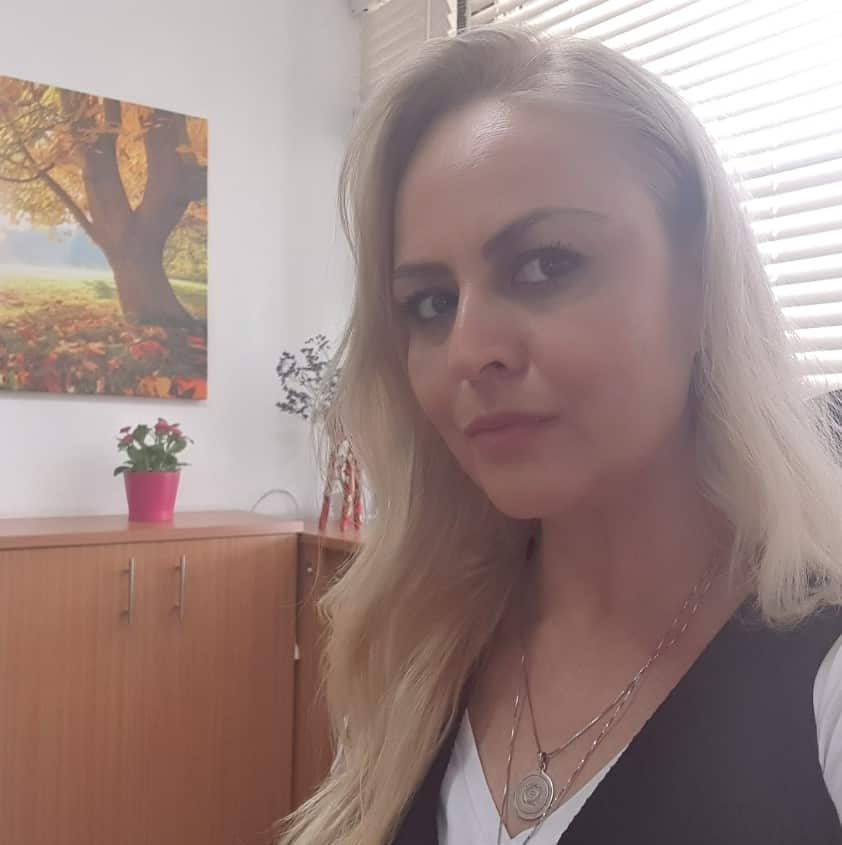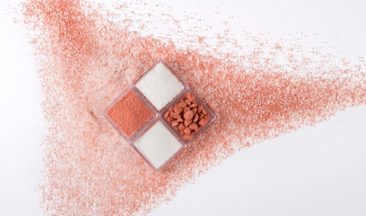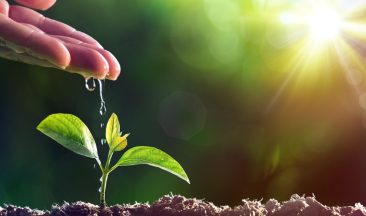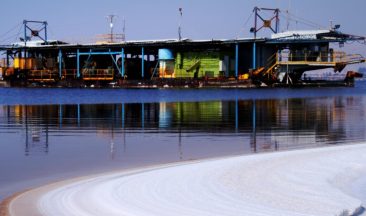Sharon Krumbein Rubin, Manager of New Stream & Products at Rotem, Israel, was chosen to participate in the Dutch government’s unique and high-profile circular economy promotion program. Sharon tells us about her team’s involvement in the groundbreaking project.
As part of ICL’s focus on sustainable ecology and environmental projects in both production and operations, we’ve initiated new ventures and partnerships, ones that promote a change from linear production towards a circular economy. To this end, the Rotem site opened a business division that I lead, dedicated to researching and reimagining byproducts as valuable materials. We’re challenging ourselves to identify the unique properties and potential uses of what we used to consider byproduct waste materials from production at Rotem, so that we can use these materials to replace existing products, or identify and develop new markets and applications for them.
Our methodology considers everything that goes into the production of ICL’s existing products, and all the valuable essential minerals contained in the byproducts, including fluorine, silica, sulfur, calcium carbonate, and calcium sulfate – materials that are in demand globally, and may be more affordable to extract from the byproducts than what’s available on the market.
Once a year, the Israeli National Action Plan for a Circular Economy is updated and announced. The Plan for 2020 announced a joint initiative between the governments of Israel and the Netherlands, on recycling and the circular economy. The Embassy of the Kingdom of the Netherlands in Israel offered a 3-day visit to the Netherlands for 6 to 10 Israelis who are active in the circular economy field, to generate dialogue and cooperation between participants from both countries, in a variety of industries. They were looking for key people who are championing recycling and circular economy within their companies, and those who can generate interest and make an impact.

Out of 30 applicants from leading manufacturers in Israel, the Embassy of the Netherlands chose 5 finalists, among which was ICL. As manager of the Business Division in Rotem, whose mission is to take recycling to the next level, ICL chose me to apply to the Embassy’s program. Our novel view of waste and recycling distinguished Rotem’s exciting sustainability journey and our pioneering approaches to transform byproduct waste into value-add products.
As part of the initiative, the Embassy of the Netherlands came to visit the Rotem site to learn more about our extensive work in recycling and circular economy at ICL in general and at Rotem in particular. On Dec 17, Ambassador Hans Docter, accompanied by Embassy representatives, joined us for a riveting meeting about the circular economy. The visit included engaging presentations about sustainability and leading projects in the field of circular economy, both at ICL and in the Netherlands. The Phosphate Solutions Division presented their work on new product development, and our cooperative ventures with leading Israeli companies in infrastructure, construction, and cement production.
For example, cement manufacturers have long added fluorine-based minerals to their products to reduce the temperature of the cement. Rotem, in partnership with IMI, made significant advances in developing a solid mineralizer for manufacturing cement, based on FSA, that can reduce energy costs, increase yields, improve cement quality, and reduce CO2 emissions.
The meeting also emphasized the topic of phosphate recycling, which is gaining traction mostly in Europe but also here at some of ICL’s projects. One initiative that was recently approved will be an investigation of the suitability of Phospogypsum as an additive to oil shale fly ash, for use as a road bedding filler. The project partner is a leading Israeli construction and concrete company, that employs planners and influential decision makers in the infrastructure field.
We also presented innovations at Rotem in operations, technology, and new products to the delegation from the Netherlands. For example, in the last three years we have been making determined efforts on the technology and business sides, to find applications for byproduct fly ash as a substitute for sand, in construction and infrastructure. This solution could address the shortage in construction materials, specifically the shortage of sand, that is a real and growing concern in the construction industry.
The visit concluded with a site tour to showcase our production facilities, a tour of the mine and showcase of the engineering tools used for phosphate mining, and a tour of the Rotem workshop’s ICL Centre of Excellence in 3D Printing and Scanning.
Read more:
Bromosol™ – A single component for effective biofilm treatment







